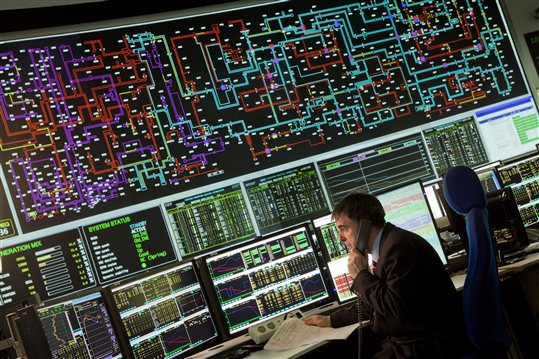Britain’s energy regulator is seeking stakeholder views on investments plans totalling £20.9 billion which will shape the nation’s electricity network until 2028.
Before making its final decisions in December, Ofgem anticipates reactions before 25 August to its revision of RIIO-ED2 submissions made by six companies, running eight regional Distributed Network Operator (DNO) monopolies.
The companies’ investment bids, reviewed by the regulator since December, are the blueprint for upgrading Britain’s grid, making it more accommodating for rapid electrification of surface transport, heat and power storage.
The regulator’s role is to advance technology upgrades towards Net Zero, while ensuring DNOs’ profits are not excessive over their local monopolies
Announced yesterday, Ofgem’s provisionally approved schedule of works include £2.7billion of early spending, aimed at accommodating EV charging, up to 600,000 heat pumps by 2028, and admitting burgeoning solar, wind and storage on to regional grids.
With one in five new car registrations now being an electric or a hybrid, EV adoption is outpacing the expectations of the Climate Change Committee, it revealed yesterday.
Ofgem has barred the DNOs from raising any cash needed for agreed investments from customers. Instead it says “tough efficiency challenges” now face the firms’ investors, many of them non-British, warning they must curb their profit expectations over the review’s five years.
The regulator calculates its clampdown as requiring 1.2% in efficiency savings in operations every year from the DNOs. In addition Ofgem’s tightening of purse strings governing flexible funding sought by the DNOs also entails a 17% ratcheting down of baseline funding.
In December WPD, the biggest of the DNOs, flagged its hoped for £ 6.8 billion of network improvements before March 2028. SSEN sought £4 billion, Northern Powergrid £3.3 billion, and Electricity North West £1.8 billion
UK Power Networks, covering three DNO areas covering over 8 million connections from Norfolk to the south coast, sought to innovate by setting up an arms-length Distributed Service Operator (DSO) covering its franchises.
Ofgem said its draft determinations will enable the delivery of a more secure and reliable electricity network less at risk of power cuts and new support and guidance for vulnerable and low-income households.
Innovations include requiring DNOs to include an “agile package” of uncertainty mechanisms. These are intended to allow investment to adapt quickly, supporting higher-than expected uptake of low carbon technologies such as batteries and heat pumps.
Regional gridcos are encouraged under Ofgem’s drafts to carry further the DNO/DSO split, provided they can ensure transparent accountability among management teams for operational and structural decisions made affecting each activity.
Industry reaction was cautious. For the Electricity Networks Association, chief executive David Smith hinted at further haggling : “The final determinations will need more work to give us confidence that RIIO-ED2 will be compatible with customers’ expectations of an energy system that enables the transition to net zero. We will work with Ofgem over the coming months to meet this challenge.”
Defending bill payers, Gillian Cooper, head of energy policy for Citizens Advice, said: “Ofgem is right to challenge the networks to operate as efficiently as possible – particularly when many families are being squeezed from all sides amid rising bills.”
More on Ofgem’s draft RIIO-ED2 determinations here.




